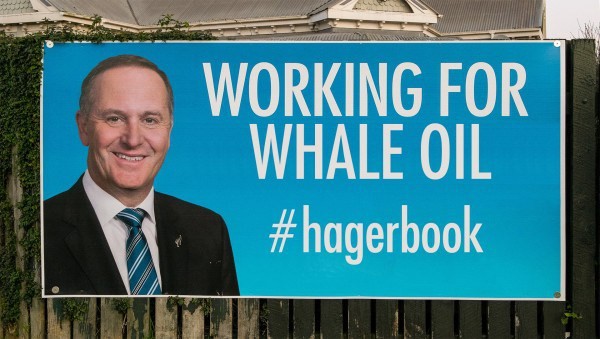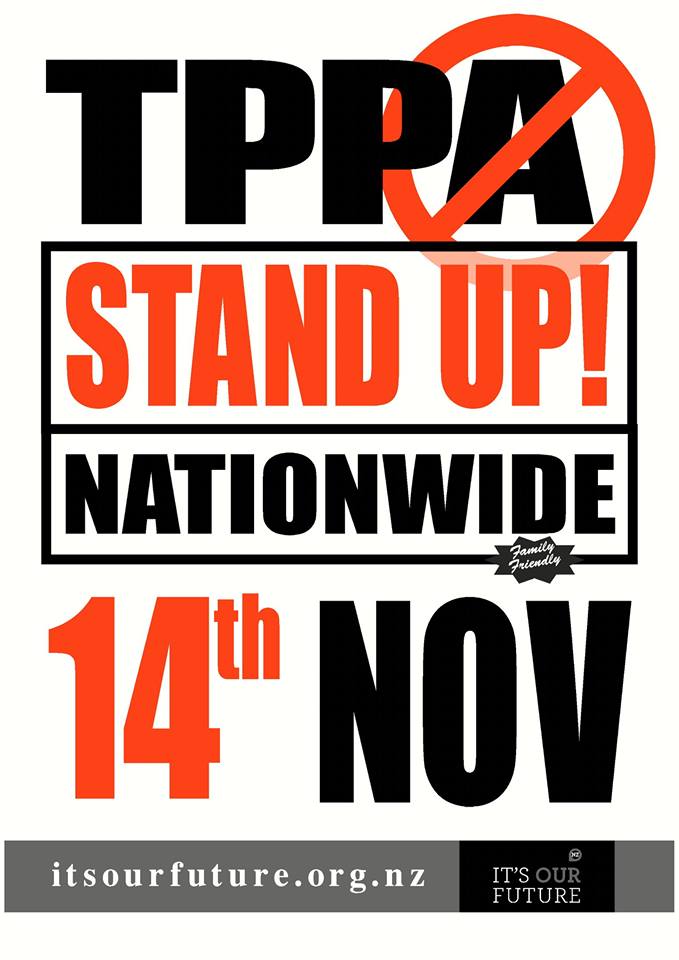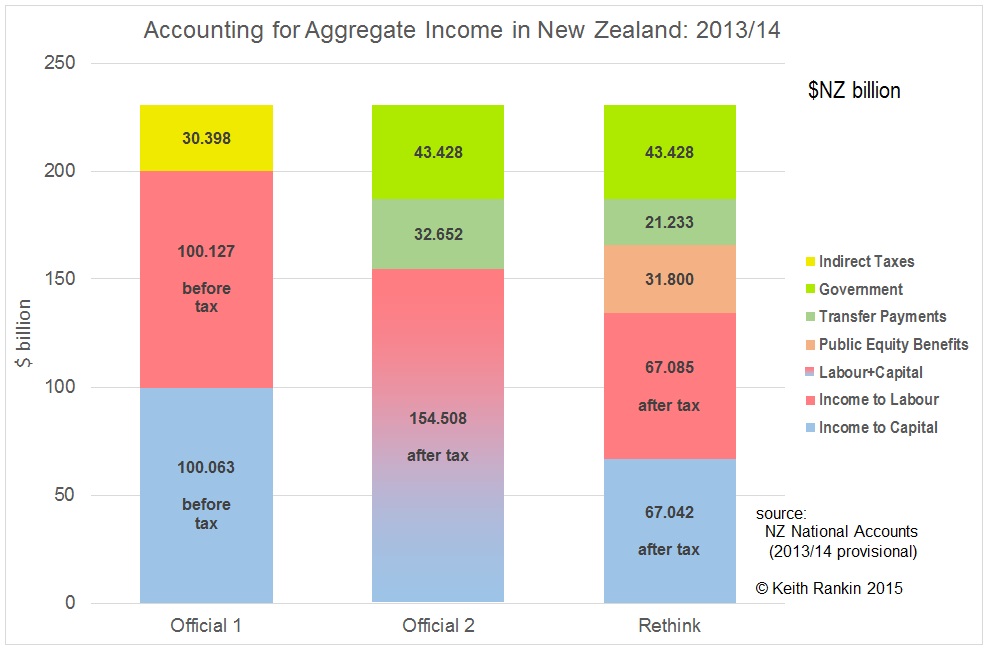What part of “There is not and never will be a Palestinian state” does Murray McCully not understand?
Every day, Palestinians, living in their own country, are persecuted by soldiers and police from another country – Israel. The Occupying power’s armed enforcers kill, take prisoner, humiliate and restrict the movements of people in the furtherance of a racist ideology that is obsessed with changing the “demographic composition” (see Security Council Resolution 446) not just of East Jerusalem but of the whole of Occupied Palestine. To that end, while the world looks on and does nothing, Israeli forces relentlessly commit crimes against humanity in the territories they dominate. These violations have been identified and condemned in countless UN Security Council and General Assembly resolutions and millions of news reports.
What the world can see, the news media and many politicians ignore
On 13 October 2015, the UN Relief and Works Agency for Palestine Refugees declared that “an entire generation of Palestinians is at risk” and called upon “all political actors” to “act decisively” to “restore hope to Palestinians” that there can be for them “a dignified, secure and stable future.” On 19 October, the Catholic peace movement Pax Christi International issued a statement noting that the Israeli Army and police use “. . . excessive force in a ‘shoot to kill’ policy against Palestinian civilians, resulting in injury and death and provoking counter-violence from the Palestinian community.” Pax Christi also observed that Israeli forces “are inciting and provoking extremists on both sides of the conflict in attempts to escalate violence and justify further military action. Such actions must be challenged.” It recognised in its statement what the mainstream news media and too many political leaders fail to acknowledge – “the deep frustration and oppression of Palestinians who have lived with forty-nine years of illegal occupation.” The Pax Christi statement pleaded with the “international community, including the EU and the United Nations to renew its resolve to address the root causes of the conflict.” The statement went on to note that “international protection for Palestinian civilians has emerged as a key need . . .” and that “the Occupation should be ended in order for peace to be achieved.” On Friday, 16 October, in a speech to the Security Council, the Russian Permanent Representative to the UN Security Council, Ambassador Vitaly Churkin, called on the UN Secretary General Ban Ki-moon to submit to the UN Security Council a proposal related to granting international protection for Palestinians in Occupied territories. Churkin declared that Israel was responsible for the on-going tension in East Jerusalem and said that Israel, as an Occupying power, was “obliged to address the situation in the West Bank and East Jerusalem, and respect humanitarian principles regarding people in the Occupied territories.”
Day and night under Occupation
Schoolchildren are the most innocent of victims. Growing up under Israeli military Occupation inevitably engraves deep impressions upon their minds. Their earliest memories are of night home invasions and witnessing people being beaten, sometimes even killed. They share in the grief for lost family members and live with the ever-present clouds of stifling Israeli tear gas. Many have fathers who are obliged to set off for work in the middle of the night, simply in order to get through the mindlessly banal checkpoints that Israel forces non-Jews to negotiate in Occupied Palestine. Maya Abu Hayat is the director of the Palestine Writing Workshop and a mother of three. She says the situation for Palestinians in East Jerusalem has been worsening for years and now the new restrictions on movement inside Jerusalem are even more severe. Maya has twins, just seven years old, and she says that now most of their questions are about death.
Our news media should be helping people to appreciate the despair that Palestinian villagers suffer when, for instance, their precious olive harvest is plundered by Occupation settlers, as happened twice on the same day in different West Bank areas just this month. We should try to imagine the trauma of being frequently forced out of one’s home, along with dozens of neighbouring families as Palestinians are in the Jordan Valley, because a foreign army wants to conduct military exercises. Imagine how frantic the parents must feel, after their home has been subjected to a night home invasion by heavily-armed troops who ordered their children out of their beds and abducted one or more of them. Imagine owning an orchard and seeing foreign settlers or their army, or both together, setting fire to your trees.
Water
A major aquifer under the West Bank is controlled by Israel and from it the Occupying power illegally plunders two-thirds of the precious water. Across the Occupied West Bank, Israel’s illegal settlements have completely free access to water. Settler homes enjoy full swimming pools and well-watered gardens, while Palestinian access to their own water is severely restricted. Israel compounds this crime in two ways: The Zionist state forces Palestinians to pay the Israeli government public water supply company Mekorot for what little water they are allowed and, at the same time, Israel forbids Palestinians to sink wells or even build water storage facilities. Palestinians living under Israeli Occupation are restricted to about 70 litres a day per person – well below the 100 litres per capita daily recommended by the World Health Organisation (WHO) – whereas Israeli daily per capita consumption, at about 300 litres, is about four times as much.
Home demolitions and collective punishments
Israel is the beneficiary of Britain’s contemptuous denial of Palestinian self-determination following the defeat of the Ottoman Empire. It was Britain that introduced the British Mandate Regulation 119 of the Defence (Emergency) Regulations and granted itself broad discretionary powers to impose excessive punishments without trial or any other judicial proceedings. Since 1967, Israel has adopted the principles of this same British regulation for use against the Palestinian people to destroy Palestinian homes. Collective punishment perpetrated by Israel includes the destruction of local agriculture, orchards, solar power facilities, wells and irrigation. The United Nations Security Council, the General Assembly, the International Committee of the Red Cross and the International Court of Justice in The Hague, among others, have all affirmed repeatedly that Israel’s Occupation is governed by the Fourth Geneva Convention. The Fourth Geneva Convention protecting civilians in times of war states that no one living under military Occupation “may be punished for an offence he or she has not personally committed.” It adds that “collective penalties” and “reprisals” against the population and their property are prohibited. Israel is fast-tracking the demolition of homes belonging to the families of Palestinians accused of, or involved in, attacks on Israeli Jews. Demolishing a family home is a cruel enough act of collective punishment but at times the Israeli Army, even more sadistically, forces some families to destroy their own homes.
UNRWA concern
On Monday, 13 October, the UN Relief and Works Agency for Palestine Refugees (UNRWA) condemned the recent murders of Palestinians as well as injuries inflicted by Israeli Occupation forces. Violence was prompted by groups of Jewish settlers forcing their way into the grounds of East Jerusalem’s Al-Aqsa Mosque over the last month. UNRWA expressed its concern over the use of live ammunition by Israeli forces to disperse demonstrators, describing it as “excessive use of force”, which, it said, “may be contrary to international law enforcement standards”. UNRWA observed that, for Palestinians across the whole of Occupied Palestine, “there is a pervasive sense of hopelessness and despair resulting from the denial of rights and dignity”.
In Israel, nine human rights organisations, including B’Tselem, the Association for Human Rights in Israel and Amnesty International, have jointly condemned Israel’s “shoot to kill” policy against Palestinian suspects. In their statement the organisations observe that “. . . it seems that too often, instead of acting in a manner consistent with the nature of each incident, police officers and soldiers are quick to shoot to kill.” Leading Israeli politicians and officials seem to support the summary executions of Palestinians; Israel’s police commander for Jerusalem, Moshe Edri, has stated: “Anyone who stabs Jews or hurts innocents — his judgement is to be killed.” Israel’s public security minister Gilad Erdan asserted that “every terrorist should know that he will not survive the attack he is about to commit.” It goes without saying that such measures do not apply to Jewish settler terrorists.
Desperate to annul Palestine’s diplomatic successes
With the raising of the Palestinian flag at the United Nations (Palestinians living under Occupation can be shot or taken prisoner for displaying that same flag) and other diplomatic achievements, along with the growing success of the Boycott Divestment and Sanctions movement (BDS), Israel is panicking and exploits acts of desperation by young Palestinians to reinforce its carefully-nurtured stereotypes of Palestinians. To keep that pot boiling Israeli soldiers even dress up as Palestinian youngsters and throw stones at uniformed soldiers, to encourage demonstrators to do the same. Recent film of Occupation violence in the West Bank and Jerusalem shows what appear to be armed civilians seizing Palestinian demonstrators and handing them over to the Israeli Army. Israel calls these soldiers mistaravim and they are dressed in order to merge unnoticed among the local Palestinians to carry out missions that include outright murder on behalf of the Israeli Occupation forces.
Israel’s uncompromising contempt for the so-called peace talks
At a ceremony to mark Jerusalem Day on 21 May 2009, at the city’s Mercaz Harav Yeshiva, Binyamin Netanyahu said “Jerusalem is the eternal capital of the Jewish people, a city reunified so as never again to be divided.” Also speaking at the ceremony was Knesset Speaker, Reuven Rivlin. Asserting that Israeli sovereignty over Jerusalem is not negotiable, Rivlin said: “The world must recognise our sovereignty, as well as the primacy of the Jewish people in the holy sites, as our inalienable right.”
Squandering NZ’s voice at the Security Council
It is a deep shame that what the world can see, New Zealand’s Foreign Affairs Minister cannot, or will not acknowledge. According to an Associated Press report, Murray McCully told a UN Security Council ministerial meeting on Thursday, 22 October, that he will “circulate a draft UN resolution in the coming days that will . . . reaffirm the council’s commitment to a two-state solution and direct talks to achieve peace.” Either Murray McCully is pathetically ill-informed or he is, like John Key, covering for Israel because he surely must know that the Zionist state has unequivocally rejected the two-state solution. On Sunday, 18 October, Israel’s Justice Minister Ayelet Shaked declared to a conference in Washington DC that, “We are against a Palestinian state. There is not and never will be a Palestinian state.” What part of “There is not and never will be a Palestinian state” does Murray McCully not understand? He could, of course, try to give the impression that this is just one Israeli voice. But the ominous reality is otherwise.
An article by Ben White, a British freelance journalist and human rights activist, reveals just how entrenched is the opposition in Israel to the idea of a two-state solution. Israel’s Deputy Foreign Minister Tzipi Hotovely has declared against it and so has the Minister of Education Naftali Bennett and the Vice Prime Minister Silvan Shalom and the Minister of National Infrastructure Yuval Steinitz and the Minister of Immigration Absorption Ze’ev Elkin and the Minister of Agriculture Uri Ariel and the Minister of Science, Technology and Space Ofir Akunis and the Minister of Transportation and Road Safety Yisrael Katz and the Minister for Social Equality Gila Gamliet and the Minister of Welfare and Social Services Haim Katz.
Just to make it crystal clear to Murray McCully
Netanyahu was re-elected on the promise that there would never be a Palestinian state so long as he was prime minister. He said so in answer to a direct question. He had, unsurprisingly, also expressed this view earlier in a video interview published on an Israeli news website. A CNN article dated 16 March 2015 confirmed Netanyahu’s position, citing a Jewish Telegraphic Agency report that he regarded a strong government led by his Likud Party as necessary to “beat back international pressure to divide Jerusalem and return Israel to its pre-1967 borders”. The CNN article reveals that Netanyahu is bent upon building more settlements. Speaking of the Har Homa Occupation settlement, he said: “The pressure around this decision back then was enormous. But I insisted – I ordered the construction and it paid off.” Netanyahu boasted that, “Today, Har Homa is a flourishing neighbourhood in which tens of thousands of Israeli civilians are living. He then confirmed what the Security Council has already recognised and condemned, regarding Israel’s intentions: “My friends and I in the Likud will keep Jerusalem united in all its parts, and we will keep fortifying it so that dividing it will not be possible and it will always remain united. We will keep developing our eternal capital.”
Yet Murray McCully, in the face of all this, and while acknowledging that “the events of recent weeks cry out for action”, railed against UN peace-keeping efforts at the UN Security Council ministerial meeting and instead mindlessly tried to sell “a realistic but early time frame” for talks and the possibility of another draft resolution setting out the parameters of a peace deal early next year!
Liberation
The world majority is agreed that the Israeli Occupation is unacceptable and when the truth can be apparent from so many, widely varied perspectives, why is it so difficult for our leaders to stand up for international law and take action? So keen to send troops to the Middle East when it suits their purposes, they should be happy to see United Nations Peace-keepers bring to the Palestinian people, at last, the security they have for so long been denied. That would be the first essential step towards ending Israel’s impunity and making possible the beginnings of a more peaceful and tolerant future.














